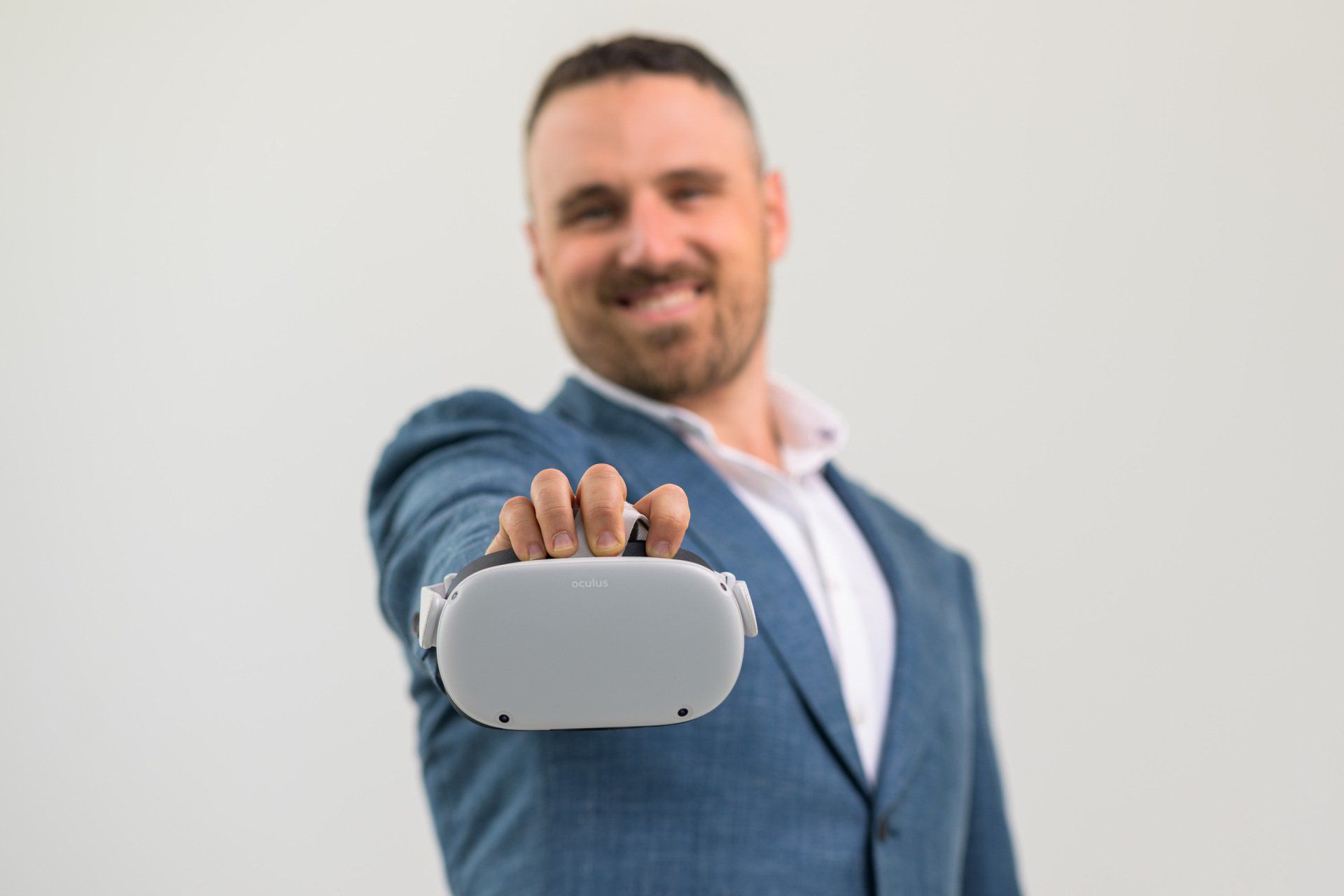The pace of innovation over the last two years can feel abrasive. The cultish following of crypto, stories of monkey jpegs selling for millions, and the Metaverse's emergence can create a feeling of exclusion to casual observers. In addition to the foreign nature of these topics, the limitation of reliable information mostly accessible on Reddit makes exploration feel all-consuming. The term "down the rabbit hole" is appropriate to those who have ventured. To those who have yet to explore, the myriad of reasons to delay is understandable. However, the investment of time and money required is far smaller than most realize, and the reward for experimentation could be the equivalent of buying Manhattan real estate in the 1900s.
The emerging center of the new online economy is the Metaverse. A space often endowed with mythic status, yet at its core, is a digital reality combining social media, online gaming, virtual reality (VR), and cryptocurrencies to facilitate user interaction. It is a medium with the potential to transform our personal, professional, and financial lives — maybe.
An Ownership Shift
On a fundamental level, the Metaverse offers personal ownership through open protocols that are user-controlled rather than strictly corporate-driven. In other words, the Metaverse allows ownership of the internet.
A key question to be considered is who creates value on the internet? Is value created by the person posting the content or the company that made the posting possible? Do you visit Instagram to view the platform or the content? Unless you are a web designer, it is likely the latter. Yet, Instagram's valued at 100 Billion dollars by monetizing content created by its users for free.
The security of cryptocurrency paired with the Metaverse's open protocols intends to return the value to the creators rather than the intermediaries of the internet. This mindset is an essential driving force to the expansion of the Metaverse and the new internet – Web 3.0
To better grasp this concept, it's essential to understand the foundational chapters of the internet — Web 1.0, Web 2.0 (current), and Web 3.0 (future).
History of the Web
On a recent Tim Ferris podcast, Metaverse experts and evangelists Chris Dixon and Naval Ravikant described the Web's evolution. Dixon refers to Web 1.0, a period from 1995 to 2005 as the "golden age of the internet" built on open protocols where no one organization controlled the internet. This period gave rise to AOL & Netscape — simplifying access to the internet with limited applicability for most users.
Then came Web 2.0, beginning in 2005 to the present as a mixture of open and closed protocols. Open protocols are the TOR network, whereas Facebook, Google, and others represent closed protocols. These closed protocols made the internet experience easier and more modular. However, a byproduct of simplicity is five companies control the internet.
Web 3.0 is the revolutionary next phase already underway.
“Web 3.0 is the internet owned by users and builders orchestrated with tokens,” says Dixon. Tokens allow users to exchange value without using fiat (government-issued) currencies. Tokens are fungible (crypto) or non-fungible pieces of media, collectible cards, and art called NFTs. Web 3.0’s foundational underpinning relies on the success of value transfer beyond fiat currency. Understandably, this is a stretch for many to conceptualize.
Value Examined
If value has to transfer in dollars, the legacy intermediaries or “closed” protocols are required to process transactions. Could you purchase stock directly from the floor of the NYSE? Unlikely. The system and regulators require an intermediary to process and simplify the service of buying equities. It's precisely how banks and streaming services capture wealth. However, if "value" could be transferred in other terms to the end-users, it removes the necessity for intermediaries.
This freedom of commerce is a primary difference with Web 3.0 — it allows for value such as artwork (jpegs), code, music, and other services to be exchanged peer-to-peer.
One might ask, "How does someone transfer value without losing, stealing, or fraud?" The open ledger model of cryptocurrencies allows all users to track & check transactions for authenticity. While nascent and not impervious to the same challenges of transactions in dollars is powering Web 3.0 and the Metaverse.
A Growing Ecosystem for Collaborating
The Metaverse is Web 3.0 in motion with the capacity to revolutionize business, creative exchange, meetings, commerce, and social sharing connectivity. By using virtual worlds designed with common elements of our existing world, the Metaverse allows users to create a space to convene, relax, and explore. An area that is your own — a world designed based upon your desires.
In more digestible terms, rather than convene your teams with "Hollywood Squares'' Zoom calls, where most attendees are drafting emails, answering Slack, and texting, you could design an immersive meeting room for your company that promotes creativity. In today's world, most users are toggling from phone screen to computer screen. The Metaverse creates a total experience where distractions can be eliminated and fosters collaboration. As foreign as this may sound when you objectively consider the current state of staring at screens, would meeting in an immersive space be a distraction or an advantage?
Would you rather speak to your close friends and family through a six-inch phone screen or relax with your tribe in a picturesque mountain lodge complete with your personally curated artwork (jpegs) that you traded or purchased in the Metaverse?
Application to Entrepreneurs
To solely read about this concept is equivalent to watching a movie about walking without never actually walking – inconceivable. In my case, the inspiration of the Metaverse for entrepreneurship and education led me to a late-night purchase at Target. At first, the Metaverse appeared shiny and new, but over time, I realized the program's infancy. In its current state, it is a place to game, meet, and experience immersive videos. After sixty days of regular use, I am amazed at both the current limitations and infinite possibilities.
To fully digest applicability requires time within the Metaverse. In our case, we established a laboratory and working group to ideate about the experience and useability. The Strategos Lab is our place to freestyle. Much like a first-time driver, this project began slowly and cautiously. However, over time we grew comfortable with speed and stretched the boundaries. There’s a progressive approach to wading into this experience. I would encourage users to envision “wasting time” as “investing time” to explore.
As I dream of the Metaverse, I imagine attendees at a conference arriving via an Oculus headset, registering with crypto tokens, and engaging with peers around the world on topics that impact the globe while still being home for dinner. A space to collaborate and physically experiment with peers without travel's time and environmental impact. I envision classrooms no longer discussing Ancient Rome, chemistry, and anatomy but experiencing these concepts. I even picture a room to visit my friends and family, separated by a pandemic, allowing for the intimacy of time together.
To understand the Metaverse requires experience within the space – which is as simple as a headset and a willingness to explore.
What could you or your business achieve if you were without the physical limitations of space and time? The edge of innovation is often misunderstood or discounted as unrealistic (a mainstream electric car, a platform to rent a room in your home, or a phone without a keyboard), and yet it is that exact place that creates the most transformative change in society. The desire for greater human connection fuels the power of the Metaverse. In a post-COVID society, I believe this desire will accelerate applications that leave the screen staring behind. The speed of adoption and use cases will surely outpace our current understanding of the internet. However, the future of society is unlikely to remain on a zoom call or FaceTime, which is precisely where the Metaverse will shine. The real question is, will you be an owner or a renter when that time comes?















